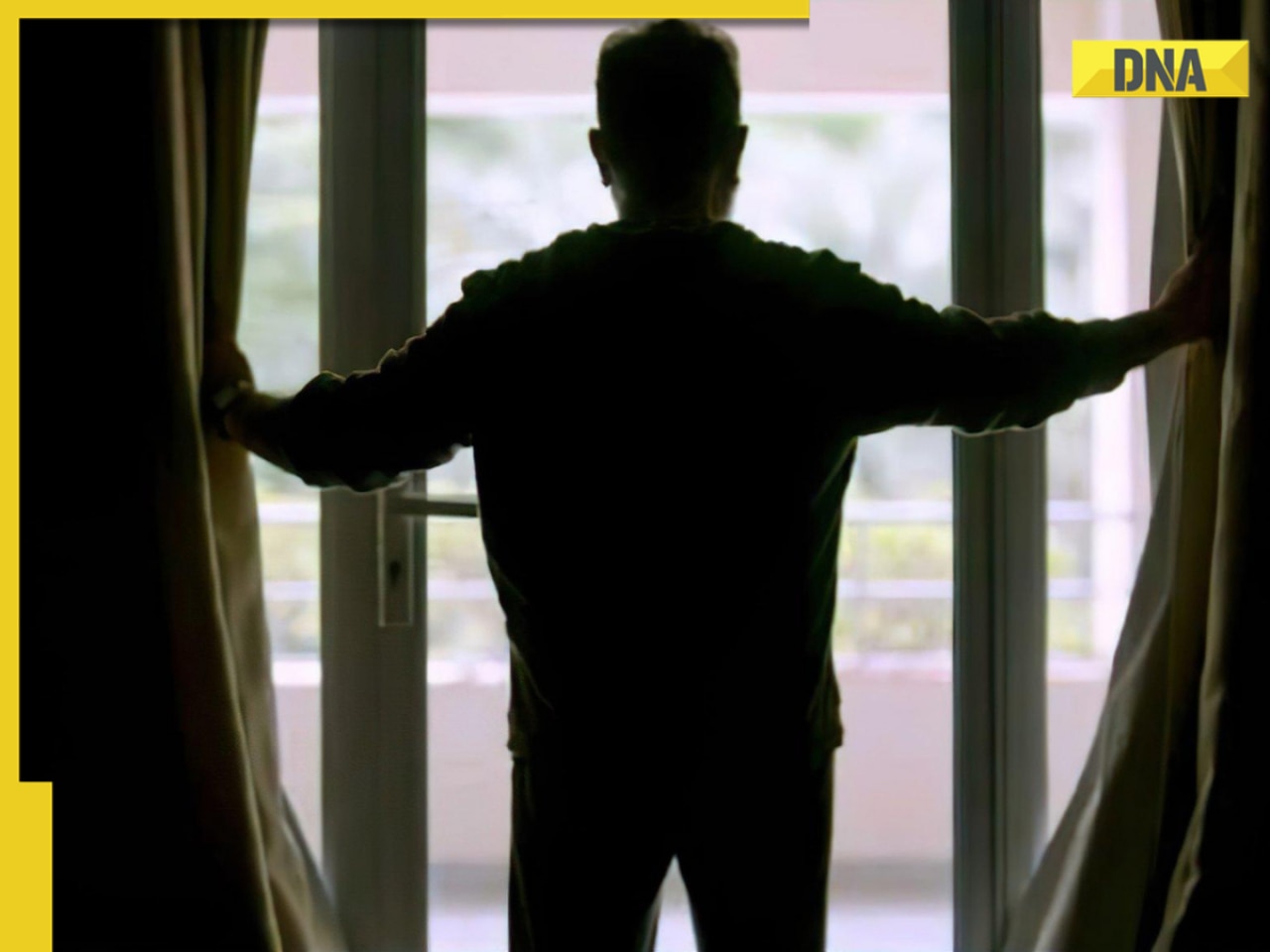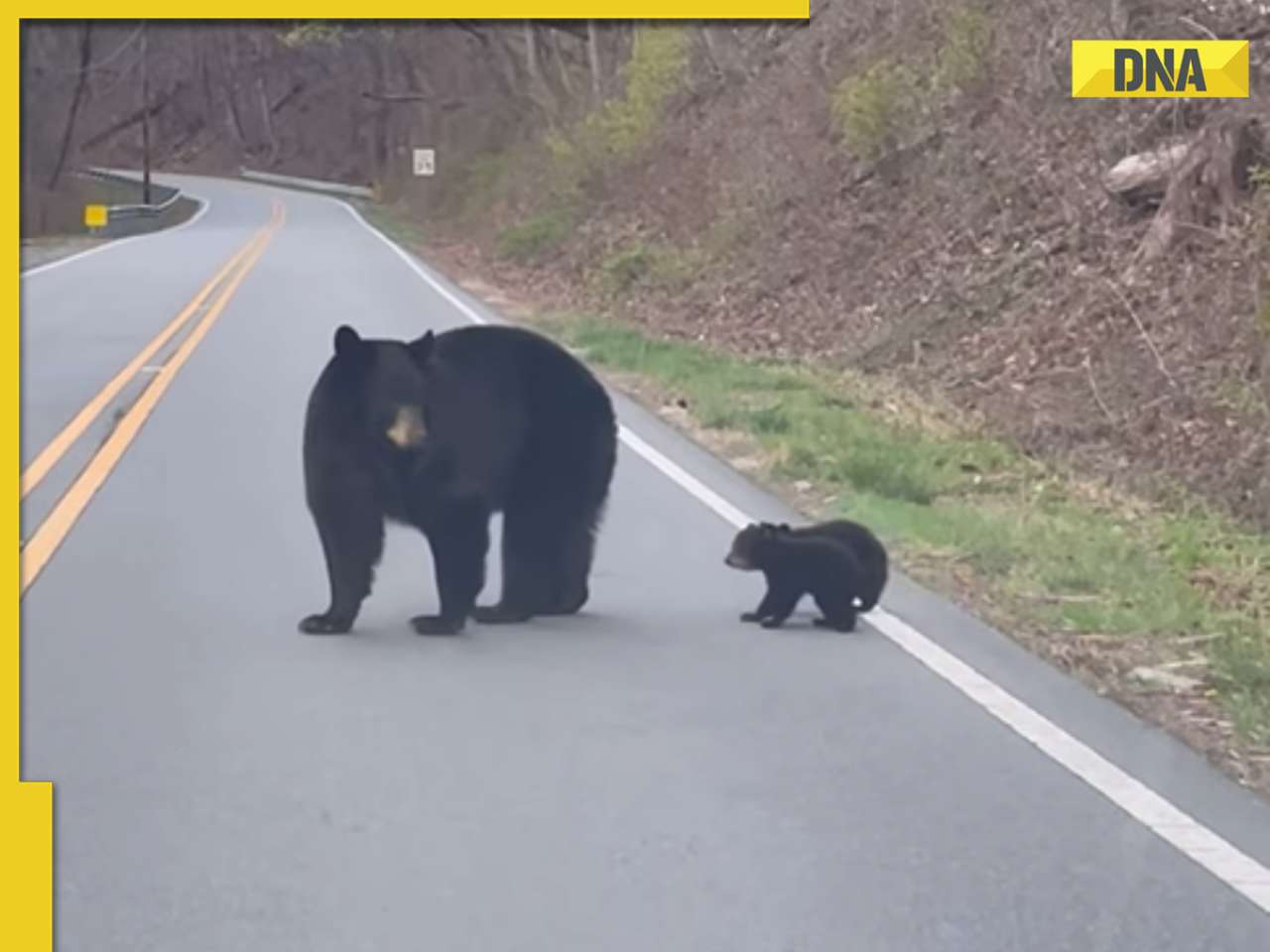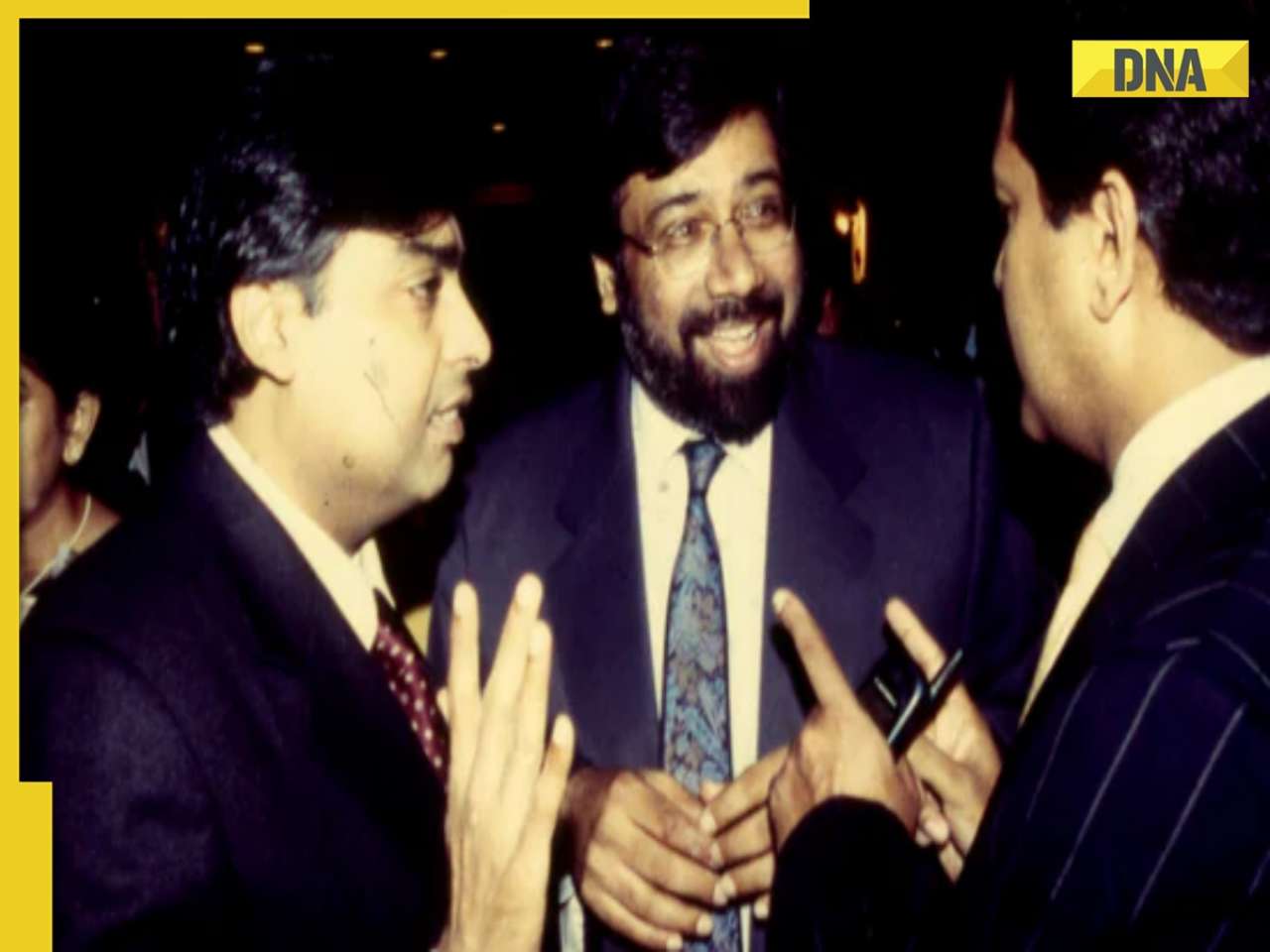Are you a good influencer? No matter what you are, what you do, you will never learn a more valuable or important set of principles and skills.
Influence may be as much a part of one’s persona as a result of deliberate efforts, says a recent book
MUMBAI: “There are three kinds of men, ones that learn by reading, a few who learn by observing and the rest of them have to pee on the electric fence and find out for themselves” — Will Rogers
Are you a good influencer? No matter what you are, what you do, you will never learn a more valuable or important set of principles and skills.
Once you tap the power of influence, you can reach out and help others work. The sky is the limit for an influencer.
According to the authors Kerry Patterson, Joseph Grenny, David Maxfield, Ron McMillan and Al Switzler, three experiences convinced them to write the book, Influencer — The Power to Change Anything.
The first experience was that the authors have been working for 18 months at the Fort Worth Tactical Aircraft Division of Lockheed Martin, home of the F-16 fighter jet.
The second nudge was about influence, when they initiated a study to uncover every intervention, which they found had successfully influenced behavioural change in organisations and the third one was, when they tracked down the best of the seasoned influencers.
As the authors say, “Influence strategies, every one of these impressive change agents employed, were based on the same set of theories and principles we had been applying in organisations for over 20 years. The promise of the book is that almost all the profound, pervasive and persistent problems we face in our lives, our companies and our world can be solved.”
The book carries excellent examples of influence-masters such as Dr Mimi Silbert, founder of Delancey Street Foundation, a one-of-a-kind organisation which has its headquarters at San Francisco’s Embarcadero. Silbert took care of thieves, prostitutes, robbers and murderers, who were nasty, racist, violent and greedy.
Then is Dr Donald Hopkins and his staff at the Carter Centre, where he and their work was to teach people of Asia and Africa to identify a handful of behaviours that help change the habits of millions of people.
Dr Hopkins and his group helped change the dangerous water-drinking habits of millions of remote villagers and eradicate the Guinea worm disease.
Dr Albert Bandura is another influence-master, where he demonstrated how powerfully our behaviour is shaped by observing others.
Dr Wiwat Rojanapithayakorn of Thailand successfully stopped the spread HIV infections after a couple of exhausting, hectic and expensive years.
As the authors say, “Notice that we have used the word ‘strategies’. We have chosen plural because there is no one strategy. When it comes to the problems that have us stymied, it takes an entire set of influence methods.”
Influence strategies can indeed be studied, tested and mastered.
“Before you can influence change, you have to decide what you are trying to change. Influence geniuses focus on behaviours. They are universally firm on this point. The breakthrough discovery of most influence comes from focusing on just a few vital behaviours,” wrote the authors.
Another vital behaviour is that top performers rapidly alternate between teaching
and questioning or otherwise testing.
Then when required, they make immediate corrections. Poor performers drone in for a long time and then let the students struggle, often leaving them to repeat the same error.
As the book states, researchers compared the best with the rest and then discovered the unique and powerful behaviours that led to success. From researches, two important concepts were learnt. First, there is a process for discovering what successful influencers actually do.
Second, in many of the areas where you would like to exert influence, the vital behaviours research has already been done.
According to the authors, there are six sources of influence — personal motivation, personal ability, social motivation, social ability, structural motivation and structural ability.
“Little knowledge is a dangerous thing. Sometimes people loathe the very thought of a new behaviour, because they lack adequate information to judge it correctly. They imagine what a new behaviour will feel like, and their predictions come up negative. Unfortunately they are often wrong.”
Also it is stated that one of the keys to motivation lies in a force just barely outside the activity itself. It lies in the mastery of ever-more challenging goals.
Keeping score produces clear, frequent feedback that can transform tasks into
accomplishments that, in turn, can generate intense satisfaction.
Influencers not only overdetermine their results, but they also rarely work alone. As an increasing number of people apply the works of Bandura, Silbert, Hopkins and other influence experts to problems of ever kind, new and vibrant influence communities are springing up every day.
By working with others to bring influence tool imaginable to bear on their problems, their growing community of experts has taught us not to be too quick to pray for serenity.
d_sanjiv@dnaindia.net
![submenu-img]() Viral video: Kind man assists duck family in crossing the road, internet lauds him
Viral video: Kind man assists duck family in crossing the road, internet lauds him![submenu-img]() Can you see the Great Wall of China from space? here's the truth
Can you see the Great Wall of China from space? here's the truth![submenu-img]() Ashutosh Rana breaks silence on his deepfake video supporting a political party: 'I would only be answerable to...'
Ashutosh Rana breaks silence on his deepfake video supporting a political party: 'I would only be answerable to...'![submenu-img]() Meet India's most talented superstar, is actor, dancer, stuntman, singer, lyricist; not Ranbir, Shah Rukh, Aamir, Salman
Meet India's most talented superstar, is actor, dancer, stuntman, singer, lyricist; not Ranbir, Shah Rukh, Aamir, Salman![submenu-img]() This flop film was headlined by star kid, marked south actress's Bollywood debut, made in Rs 120 crore, earned just...
This flop film was headlined by star kid, marked south actress's Bollywood debut, made in Rs 120 crore, earned just...![submenu-img]() DNA Verified: Is CAA an anti-Muslim law? Centre terms news report as 'misleading'
DNA Verified: Is CAA an anti-Muslim law? Centre terms news report as 'misleading'![submenu-img]() DNA Verified: Lok Sabha Elections 2024 to be held on April 19? Know truth behind viral message
DNA Verified: Lok Sabha Elections 2024 to be held on April 19? Know truth behind viral message![submenu-img]() DNA Verified: Modi govt giving students free laptops under 'One Student One Laptop' scheme? Know truth here
DNA Verified: Modi govt giving students free laptops under 'One Student One Laptop' scheme? Know truth here![submenu-img]() DNA Verified: Shah Rukh Khan denies reports of his role in release of India's naval officers from Qatar
DNA Verified: Shah Rukh Khan denies reports of his role in release of India's naval officers from Qatar![submenu-img]() DNA Verified: Is govt providing Rs 1.6 lakh benefit to girls under PM Ladli Laxmi Yojana? Know truth
DNA Verified: Is govt providing Rs 1.6 lakh benefit to girls under PM Ladli Laxmi Yojana? Know truth![submenu-img]() Aamir Khan, Naseeruddin Shah, Sonali Bendre celebrate 25 years of Sarfarosh, attend film's special screening
Aamir Khan, Naseeruddin Shah, Sonali Bendre celebrate 25 years of Sarfarosh, attend film's special screening![submenu-img]() Alia Bhatt wears elegant saree made by 163 people over 1965 hours to Met Gala 2024, fans call her ‘princess Jasmine’
Alia Bhatt wears elegant saree made by 163 people over 1965 hours to Met Gala 2024, fans call her ‘princess Jasmine’![submenu-img]() Jr NTR-Lakshmi Pranathi's 13th wedding anniversary: Here's how strangers became soulmates
Jr NTR-Lakshmi Pranathi's 13th wedding anniversary: Here's how strangers became soulmates![submenu-img]() Streaming This Week: Heeramandi, Shaitaan, Manjummel Boys, latest OTT releases to binge-watch
Streaming This Week: Heeramandi, Shaitaan, Manjummel Boys, latest OTT releases to binge-watch![submenu-img]() Remember Ayesha Kapur? Michelle from Black, here's how actress, nutrition coach, entrepreneur looks after 19 years
Remember Ayesha Kapur? Michelle from Black, here's how actress, nutrition coach, entrepreneur looks after 19 years![submenu-img]() Haryana Political Crisis: Will 3 independent MLAs support withdrawal impact the present Nayab Saini led-BJP government?
Haryana Political Crisis: Will 3 independent MLAs support withdrawal impact the present Nayab Saini led-BJP government?![submenu-img]() DNA Explainer: Why Harvey Weinstein's rape conviction was overturned, will beleaguered Hollywood mogul get out of jail?
DNA Explainer: Why Harvey Weinstein's rape conviction was overturned, will beleaguered Hollywood mogul get out of jail?![submenu-img]() What is inheritance tax?
What is inheritance tax?![submenu-img]() DNA Explainer: What is cloud seeding which is blamed for wreaking havoc in Dubai?
DNA Explainer: What is cloud seeding which is blamed for wreaking havoc in Dubai?![submenu-img]() DNA Explainer: What is Israel's Arrow-3 defence system used to intercept Iran's missile attack?
DNA Explainer: What is Israel's Arrow-3 defence system used to intercept Iran's missile attack?![submenu-img]() Ashutosh Rana breaks silence on his deepfake video supporting a political party: 'I would only be answerable to...'
Ashutosh Rana breaks silence on his deepfake video supporting a political party: 'I would only be answerable to...'![submenu-img]() Meet India's most talented superstar, is actor, dancer, stuntman, singer, lyricist; not Ranbir, Shah Rukh, Aamir, Salman
Meet India's most talented superstar, is actor, dancer, stuntman, singer, lyricist; not Ranbir, Shah Rukh, Aamir, Salman![submenu-img]() This flop film was headlined by star kid, marked south actress's Bollywood debut, made in Rs 120 crore, earned just...
This flop film was headlined by star kid, marked south actress's Bollywood debut, made in Rs 120 crore, earned just...![submenu-img]() India's most successful star kid was superstar at 14, daughter of tawaif, affair with married star broke her, died at...
India's most successful star kid was superstar at 14, daughter of tawaif, affair with married star broke her, died at...![submenu-img]() India's biggest flop actor, worked with superstars, married girl half his age, once left Aamir's film midway due to..
India's biggest flop actor, worked with superstars, married girl half his age, once left Aamir's film midway due to..![submenu-img]() England pace legend James Anderson set to retire from Test cricket after talks with Brendon McCullum
England pace legend James Anderson set to retire from Test cricket after talks with Brendon McCullum![submenu-img]() IPL 2024: Shubman Gill, Sai Sudharsan centuries guide Gujarat Titans to 35-run win over Chennai Super Kings
IPL 2024: Shubman Gill, Sai Sudharsan centuries guide Gujarat Titans to 35-run win over Chennai Super Kings![submenu-img]() KKR vs MI IPL 2024: Predicted playing XI, live streaming details, weather and pitch report
KKR vs MI IPL 2024: Predicted playing XI, live streaming details, weather and pitch report![submenu-img]() 'It's ego-driven...': Ex-RCB star on Hardik Pandya's captaincy in IPL 2024
'It's ego-driven...': Ex-RCB star on Hardik Pandya's captaincy in IPL 2024![submenu-img]() BCCI to advertise for Team India's new head coach after T20 World Cup
BCCI to advertise for Team India's new head coach after T20 World Cup![submenu-img]() Viral video: Kind man assists duck family in crossing the road, internet lauds him
Viral video: Kind man assists duck family in crossing the road, internet lauds him![submenu-img]() Can you see the Great Wall of China from space? here's the truth
Can you see the Great Wall of China from space? here's the truth![submenu-img]() Mother bear teaches cubs how to cross a road with caution, video goes viral
Mother bear teaches cubs how to cross a road with caution, video goes viral![submenu-img]() Meet the tawaif, real courtesan of Heeramandi, was once highest paid item girl, was killed by....
Meet the tawaif, real courtesan of Heeramandi, was once highest paid item girl, was killed by....![submenu-img]() Mukesh Ambani’s old image with billionaire friends go viral, Harsh Goenka makes joke of…
Mukesh Ambani’s old image with billionaire friends go viral, Harsh Goenka makes joke of…























































)
)
)
)
)
)